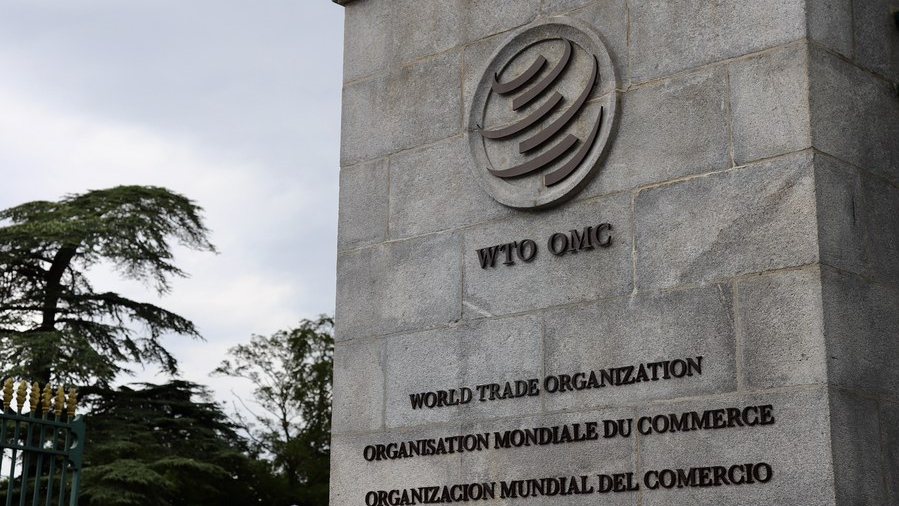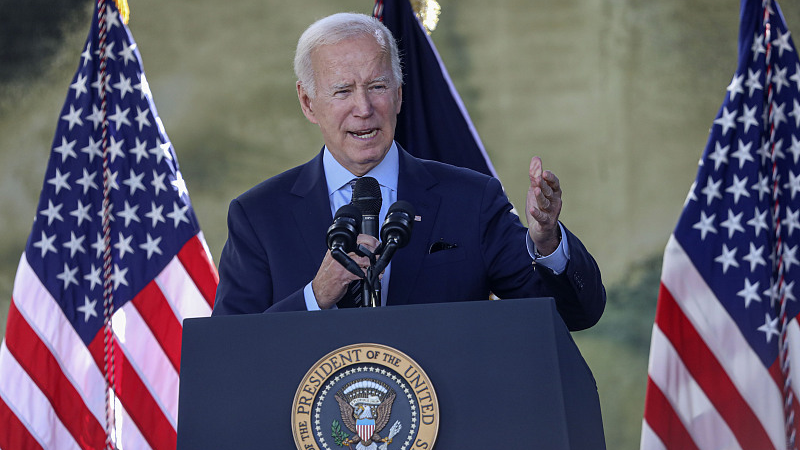
The World Trade Organization (WTO) headquarters in Geneva, Switzerland. /Xinhua
The World Trade Organization (WTO) headquarters in Geneva, Switzerland. /Xinhua
Editor's note: Thomas O. Falk is a London-based political analyst and commentator. He holds a Master of Arts in international relations from the University of Birmingham and specializes in U.S. affairs. The article reflects the author's opinions and not necessarily the views of CGTN.
The U.S. is yet again living up to its reputation as a troublemaker at the World Trade Organization (WTO) – the institution that is expected to guarantee a rule-bound and as free as possible exchange of goods.
The WTO just ruled that U.S. tariffs on steel and aluminium imports are unjust. On December 9, a three-member body of the organization ruled that the tariffs violated WTO rules and the U.S. would have to adjust its import rules for the metals. Nevertheless, Washington rejected the arbitral award and spoke of incorrect interpretations and conclusions.
There's deep irony in Washington's words. It's not the first time the U.S. has taken the WTO to absurd lengths.
The ruling refers to 2018, when then-U.S. President Donald Trump imposed tariffs of 25 percent on steel imports and 10 percent on aluminium, which started a trade war against China. Trump cited a 1962 law that allows the president to restrict imports if they threaten national security. However, various nations took action against U.S. regulations at the WTO.
Last year, the U.S. government under President Joe Biden agreed to lift tariffs on EU imports. The EU then suspended its case against Washington. Nonetheless, the same tariffs were maintained against other nations, such as China.
After the verdict, China asked the U.S. to respect the WTO decision. "China hopes the U.S. side will respect the ruling of the WTO expert panel, follow the WTO rules, and correct its wrongdoings as soon as possible, and work with China and other WTO members to jointly safeguard the multilateral trading system," the spokesperson of the Ministry of Commerce of China said.
The World Trade Organization is expected to ensure that international trade is liberalized and settle disputes in trade disputes. More than 160 countries belong to it.
Yet Washington tends to ignore the rules when rulings go against them.

U.S. President Joe Biden speaks with dignitaries and employees at ViaSat in California, the U.S., November 4, 2022. /CFP
U.S. President Joe Biden speaks with dignitaries and employees at ViaSat in California, the U.S., November 4, 2022. /CFP
To call this counterproductive would be an understatement. The WTO founds its existence in a rules-based trading system. Every participant, including the major actors, such as the EU, China and U.S., must abide by the rules if it's a world trading system for all participants.
If the rules are partly outdated, one must adapt them, which would be reasonable. Nevertheless, the U.S. has never explained how they would like to reform the WTO. They just criticize judgments made against them.
This endangers the stability, as well as credibility of the WTO. If the judgement of a neutral body is not accepted, it increases the risk of trade disputes between WTO member states. Such actions would result in jobs being endangered and protectionism, trade conflicts and subsidization taking hold. The rules for world trade are becoming less predictable, and trade turns more difficult to control. The U.S. is dismantling the WTO with its blockade attitude and creating an enormous risk for the global economy.
Thus far, the WTO is considered a success story. It prevented major trade wars for over 25 years. Today, 96 percent of global trade is subject to WTO rules. Until Trump took office, arbitrary tariffs were a rarity, and affected countries could defend themselves through dispute settlement procedures. Today's 164 members – in theory – are bound by the verdicts of the judges.
Washington's refusal to recognize the verdict could plunge the World Trade Organization into another crisis. It has a pronounced symbolic character when Washington is all too happy to set the rules of the game and no longer sticks to them. The precedent created here gives other countries an excuse not to recognize judgments that are deemed problematic to them.
Apparently, Washington is weakening the WTO, while the U.S. cannot even contest the ruling under the current WTO rules – by its own doing. Washington has blocked the appointment of new judges to the Appellate Body for years, making the responsible body de facto inactive.
The slump in the exchange of goods due to COVID-19, increasing protectionism and trade conflicts, then the partial paralysis of the WTO court by Washington – things are looking ominous for the once proud institution. Should Washington continue to act stubborn, it is doubtful the WTO could ever regain its former strength.
(If you want to contribute and have specific expertise, please contact us at opinions@cgtn.com. Follow @thouse_opinionson Twitter to discover the latest commentaries in the CGTN Opinion Section.)